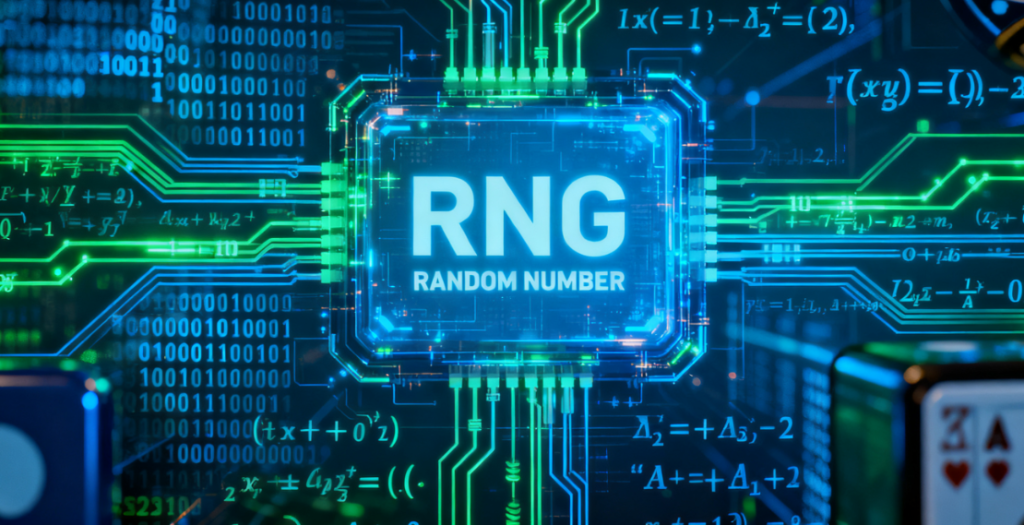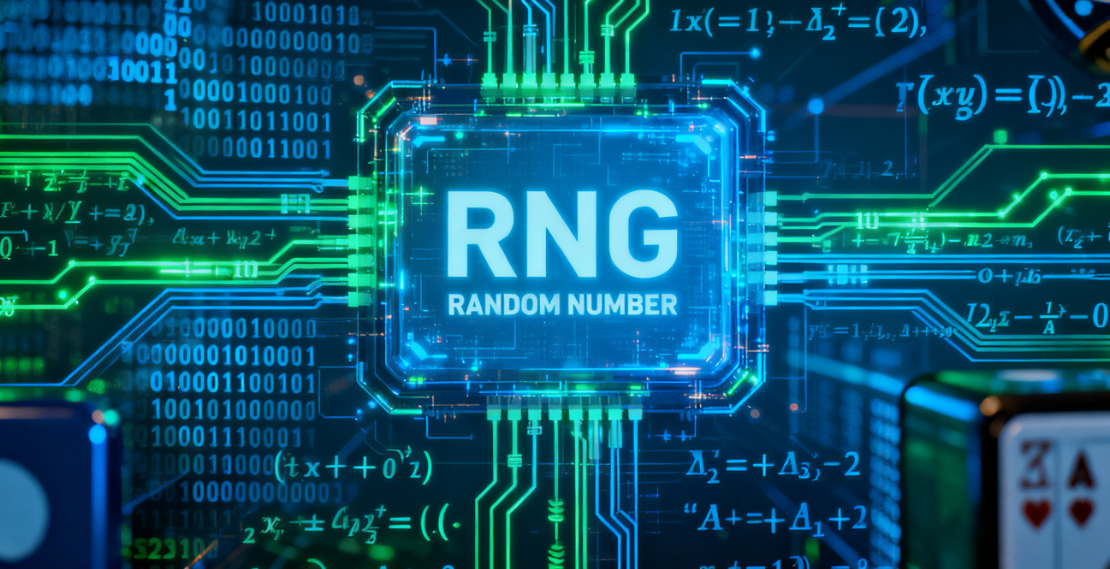As online gaming continues to grow, the integrity of the games players enjoy becomes more important than ever. One of the fundamental components in ensuring fairness in digital games is the Random Number Generator (RNG), an algorithm that drives many game outcomes, from poker hands to slot spins. This article explores the vital role RNGs play in gaming, the process of RNG certification, and why it is essential for maintaining fairness, trust, and regulatory compliance in the gaming industry.
1. Understanding RNG and Its Role in Gaming
1.1 What is RNG?
A Random Number Generator (RNG) is an algorithm designed to produce sequences of numbers that are unpredictable, which is crucial for fairness in games of chance such as poker, slots, and lotteries. There are two main types of RNGs used in gaming:
- Pseudo-RNG (PRNG): This type of RNG uses a mathematical algorithm and a seed value to generate random numbers. It is commonly used in online gaming and relies on algorithms that ensure a high level of unpredictability, although, strictly speaking, it is not entirely random.
- True RNG (TRNG): In contrast, a True RNG draws its randomness from physical entropy sources, like atmospheric noise or radioactive decay. It is often used in high-stakes applications and cryptography, where true randomness is required.
In the context of online gaming, such as platforms like Teen Patti Master, RNGs ensure that game outcomes are fair, ensuring no manipulation or predictability.
1.2 The Critical Role of RNG in Gaming
RNGs are vital in online gaming for several reasons:
- Fairness: They ensure that outcomes in games like poker, slots, and lottery games are genuinely random, maintaining the integrity of the game. For example, in Teen Patti Master, an RNG determines the shuffle and deal of cards, ensuring that no player or operator can influence the results.
- Prevention of Manipulation: Without RNGs, online games could be manipulated or rigged, undermining player trust. RNGs help prevent this by offering a system where outcomes are entirely unpredictable.
- Building Trust: For players, knowing that RNGs determine the outcomes gives them confidence that they are not being cheated, which builds trust in the platform.
2. Why RNG Certification Matters
2.1 Fairness and Integrity
RNG certification ensures that the algorithms used by online casinos and gaming platforms meet stringent standards of randomness. Certification bodies, such as Gaming Laboratories International (GLI) or eCOGRA, perform a thorough assessment to validate that the RNG behaves as expected, producing truly random results. This testing involves statistical randomness tests like Marsaglia’s Diehard tests, which check for any patterns or biases in the generated numbers.
Certification verifies that a platform’s RNG ensures fairness, which is vital for legal operations in regulated jurisdictions. Without proper certification, a platform may not comply with local regulations, potentially leading to legal penalties or the loss of licenses.
2.2 Regulatory Compliance
One of the primary reasons for RNG certification is compliance with various regulatory frameworks across different jurisdictions. Many governing bodies require gaming platforms to have certified RNGs before offering real-money gambling services.
For instance, the UK Gambling Commission and Malta Gaming Authority mandate RNG certification for any platform wishing to operate legally within their jurisdictions. As gaming laws evolve, new regulations are being introduced, such as India’s Real-Money Gaming Code of Ethics (2025), which will require RNG certification for platforms entering the Indian market.
By obtaining RNG certification, gaming platforms can avoid legal risks and ensure they operate within the bounds of local laws, making them more trustworthy in the eyes of players.
2.3 Player Trust and Brand Reputation
Players today are more conscious of the fairness of the games they play. With concerns over game manipulation and rigging, RNG certification is an essential tool for building and maintaining player trust. It assures players that the games they are engaging with, whether it’s Teen Patti Master or another platform, are fair and have been vetted for randomness and integrity.
A well-known case of RNG certification boosting player confidence involves the Belote & Coinche Multijoueur platform. By obtaining certification from GLI, the platform significantly improved its credibility and reputation, which ultimately resulted in increased player engagement and retention.
3. The RNG Certification Process
Obtaining RNG certification is a detailed and systematic process. Gaming developers must ensure that their RNG systems meet high standards of fairness and security. Below is an overview of the certification process.
3.1 Application and Documentation
The certification process begins with the developer submitting comprehensive documentation for the RNG system. This includes the RNG algorithm, game logic, source code, and details about the operational environment. For example, a platform like Teen Patti Master would submit its code for random card shuffling and dealing mechanisms for review.
3.2 Testing Phases
Once the documentation is submitted, RNGs undergo rigorous testing to ensure they function as required. These tests generally include:
- Statistical Analysis: Using advanced tools like NIST SP800-90A, the RNG is tested for randomness to ensure that the numbers it generates cannot be predicted or manipulated.
- Security Evaluation: The RNG’s resistance to tampering or reverse engineering is evaluated. This is crucial because if an attacker could manipulate the RNG, they could unfairly alter game outcomes.
- Continuous Audits: After certification, RNGs are subject to ongoing audits. This ensures that they continue to meet the required standards and remain free from flaws or biases over time.
3.3 Certification Issuance
After passing all tests, the certification body issues an official certification, which is usually valid for 1 to 2 years. If the RNG system is updated or modified, it must go through the certification process again to ensure it still meets the required standards.

4. Industry Standards and Accredited Bodies
RNG certification is not done in isolation. Various independent laboratories and standards organizations have established industry benchmarks for testing RNG systems.
4.1 Leading Certification Labs
There are several well-established labs that specialize in RNG certification, including:
- eCOGRA (eCommerce Online Gaming Regulation and Assurance): One of the leading bodies for certification, ensuring fairness and player protection across online gaming platforms.
- iTech Labs: A trusted authority in RNG testing and certification, iTech Labs offers global services to gaming platforms worldwide.
- Gaming Laboratories International (GLI): One of the most respected names in the industry, GLI provides testing and certification for RNGs to ensure fairness and compliance.
- Amile Institute: Known for its rapid turnaround and expert testing services, the Amile Institute specializes in RNG certification with a focus on both speed and technical expertise.
4.2 Key Standards
The RNG certification process follows rigorous industry standards:
- NIST SP800-90A: This standard defines the RNG requirements for cryptographic security and is a key reference for developers seeking certification.
- FIPS 140-2: This standard verifies the hardware security modules used in RNG systems, ensuring they meet the necessary security requirements.
5. Challenges and Risks in RNG Implementation
While RNG certification ensures fairness, there are challenges involved in implementing and maintaining RNG systems.
5.1 Technical Vulnerabilities
Some RNGs may have flaws that allow for predictable patterns, especially if poorly implemented. For example, older algorithms like Mersenne Twister can have biases that make them less random than expected. Weak seed values or algorithmic flaws could compromise the fairness of the games, affecting outcomes.
5.2 Regulatory and Operational Costs
The cost of certification can be significant, with fees typically ranging from $45,000 to $80,000 for RNG systems. For developers in countries like India, the fees can range from ₹4.5 to 8 lakhs. Additionally, there are ongoing costs for regular audits and updates to ensure compliance with changing regulations.
5.3 Player Skepticism
Despite the thorough certification process, some players may still distrust RNGs, especially if they do not fully understand how RNGs work. To combat this, platforms must provide transparency and educational resources to explain how the RNG system operates.
6. Future Trends in RNG Technology
As technology evolves, so too does the field of RNGs. Several emerging trends promise to enhance the security and reliability of RNG systems in gaming.
6.1 Quantum RNGs
Quantum computing holds the potential to revolutionize RNG technology by providing ultra-secure, truly random outputs. Quantum RNGs leverage the inherent randomness of quantum phenomena, ensuring that numbers are entirely unpredictable and immune to manipulation.
6.2 Hybrid Systems
Hybrid systems that combine the best aspects of PRNGs and TRNGs are becoming more popular. These systems can offer enhanced security and greater randomness, making them ideal for high-stakes gaming applications.
6.3 Regulatory Evolution
As the online gaming industry grows, regulations will continue to tighten, especially in the face of growing cyber threats. New standards for RNG systems will likely emerge to address these risks and ensure continued fairness in digital gaming.
7. Conclusion
RNG certification is an essential part of the modern gaming landscape, ensuring that online gaming platforms like Teen Patti Master operate with fairness, integrity, and transparency. By partnering with accredited certification bodies and complying with industry standards, developers can offer secure, trustworthy gaming experiences to players worldwide. As the technology evolves, RNG certification will continue to play a pivotal role in maintaining the integrity of digital gaming.


